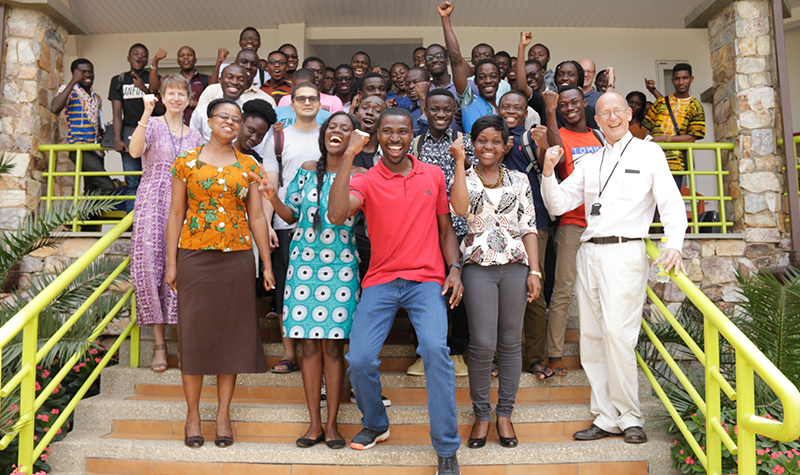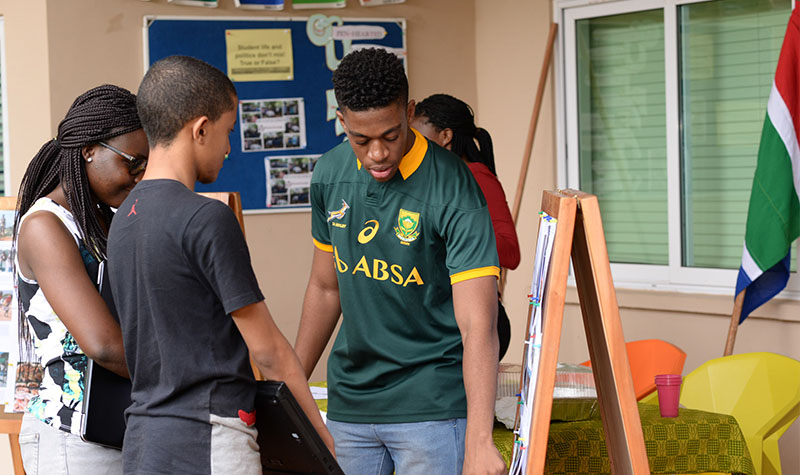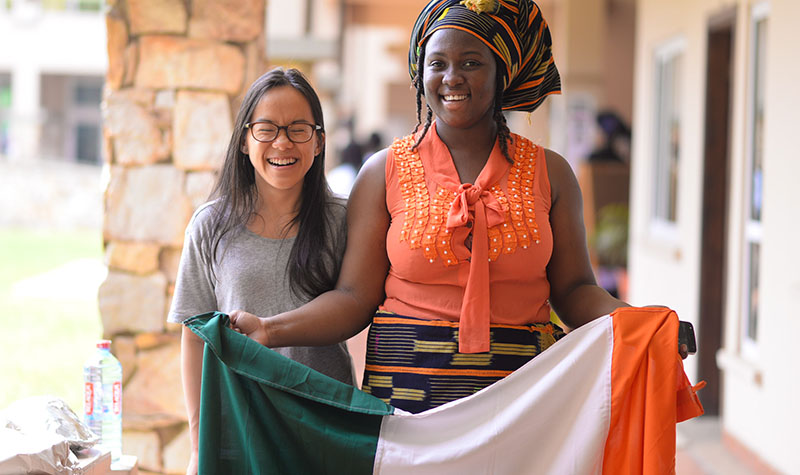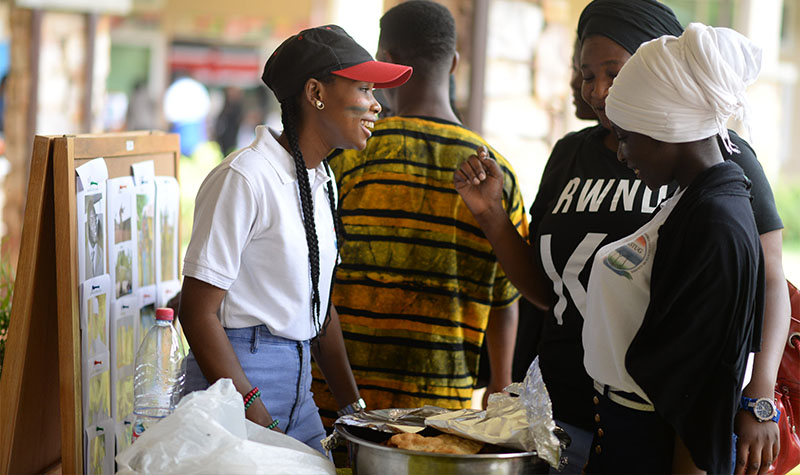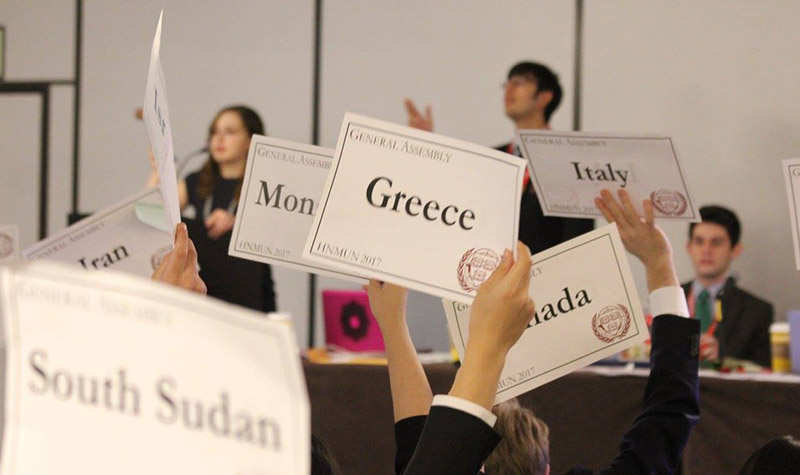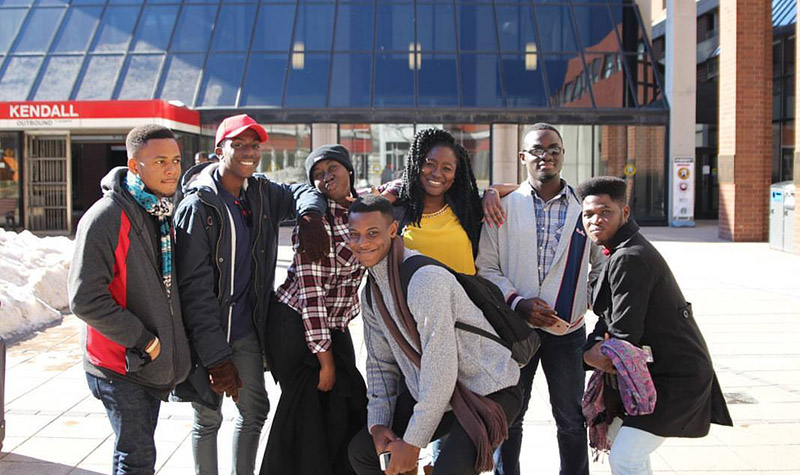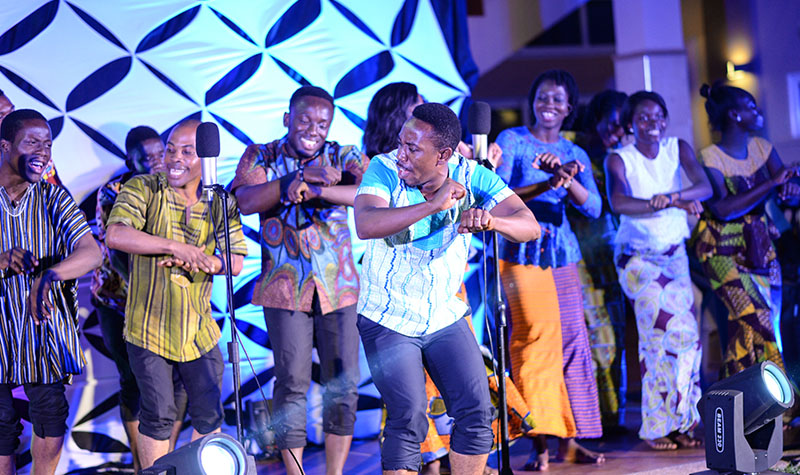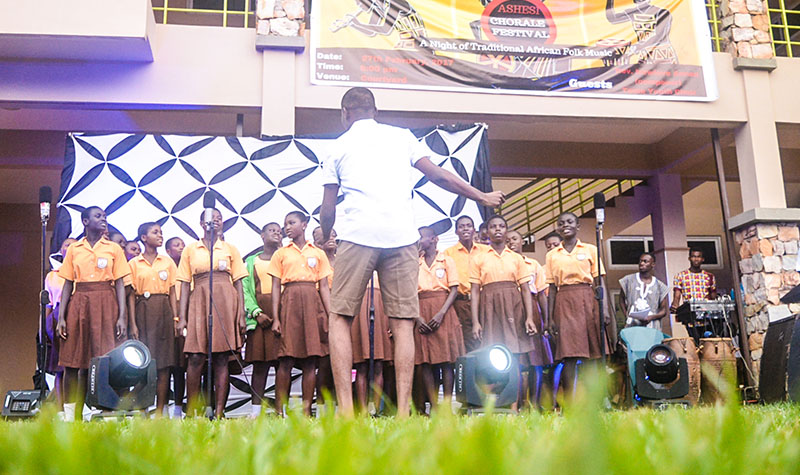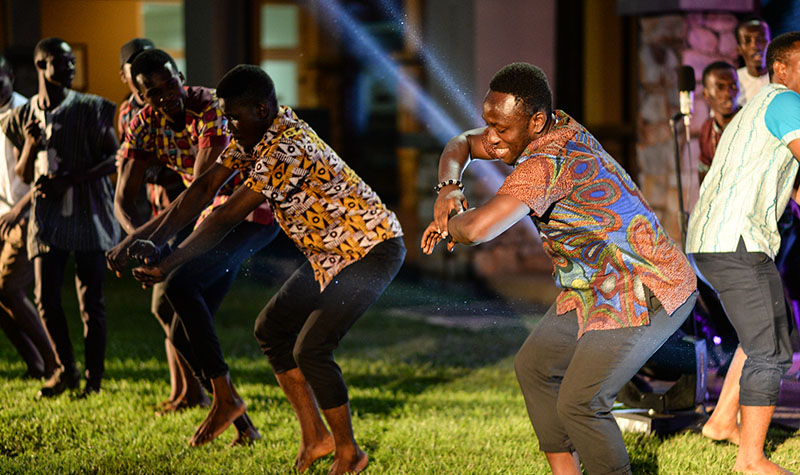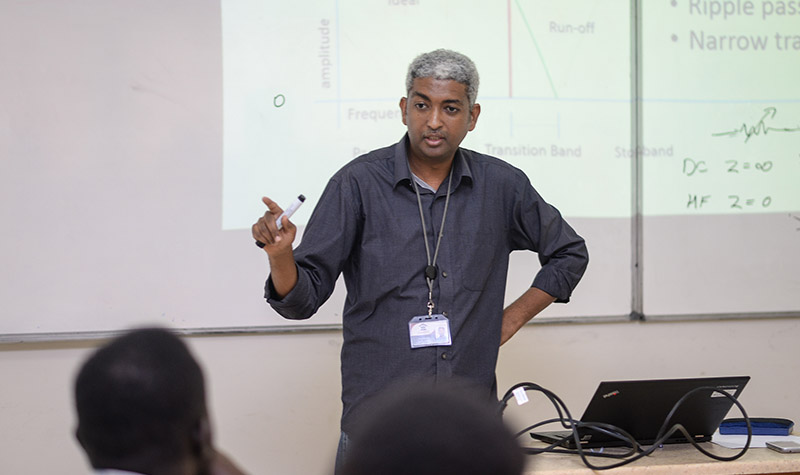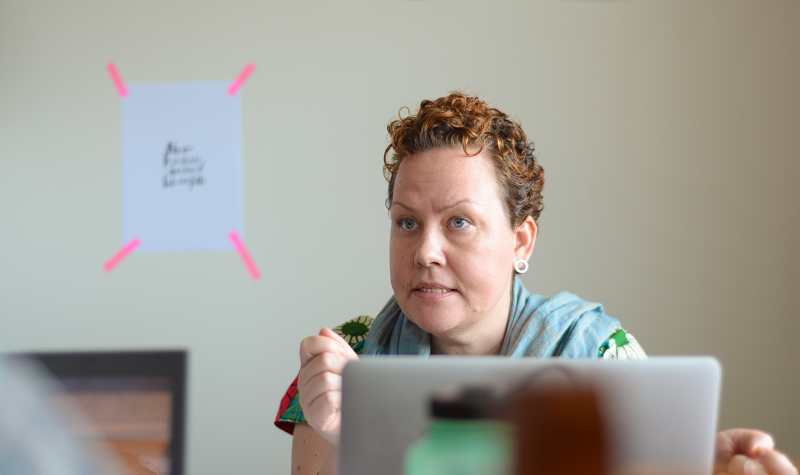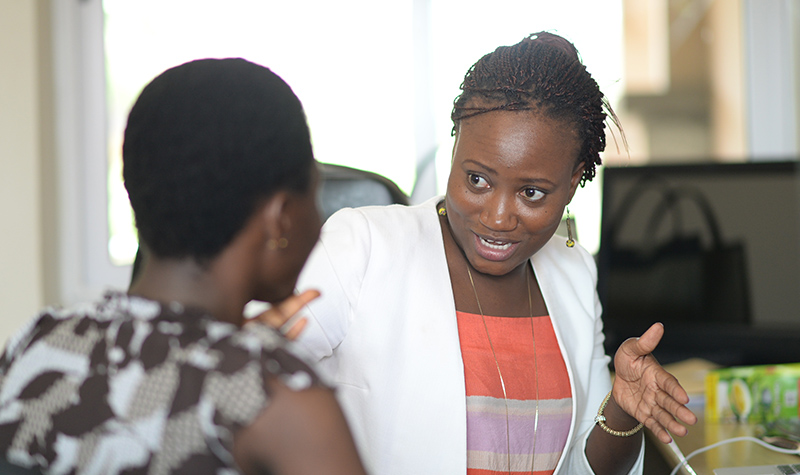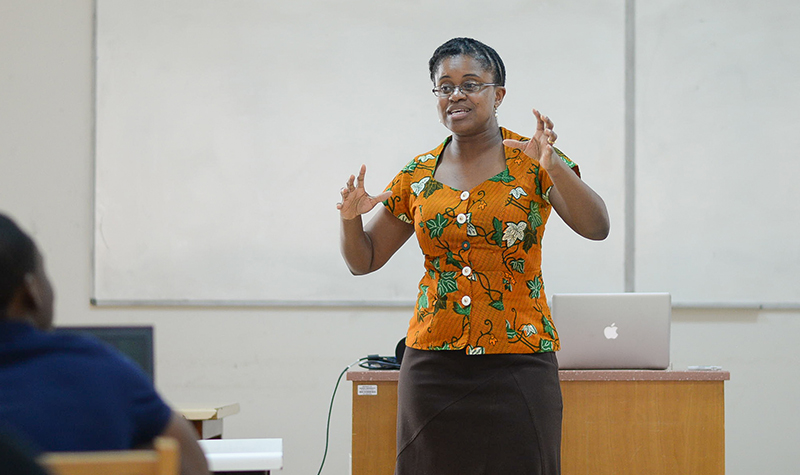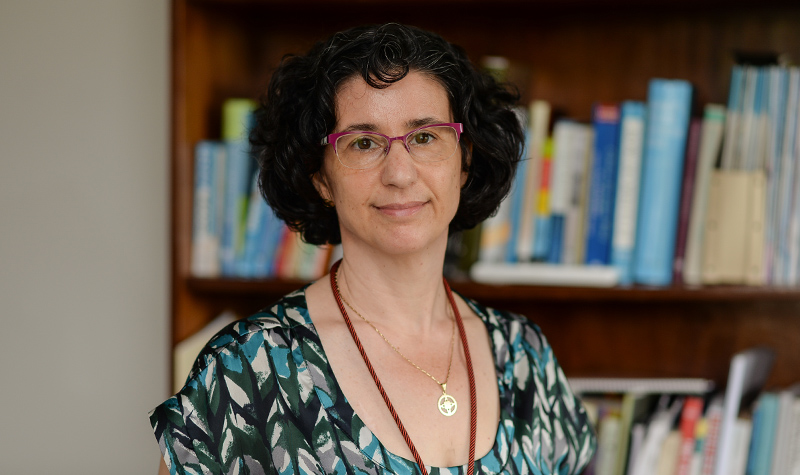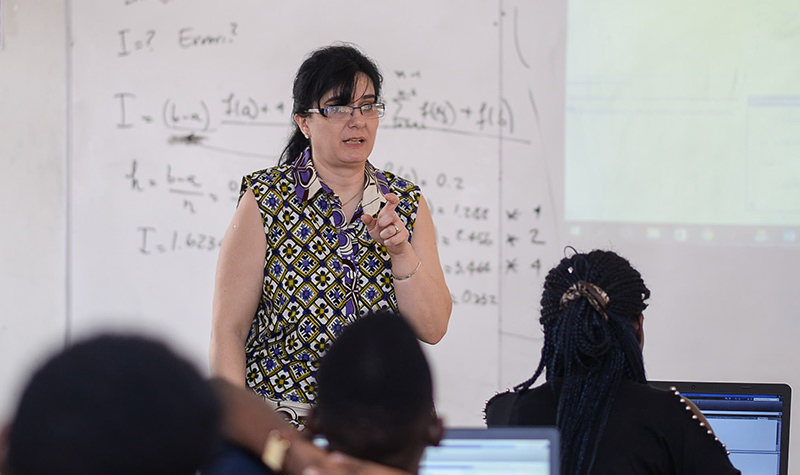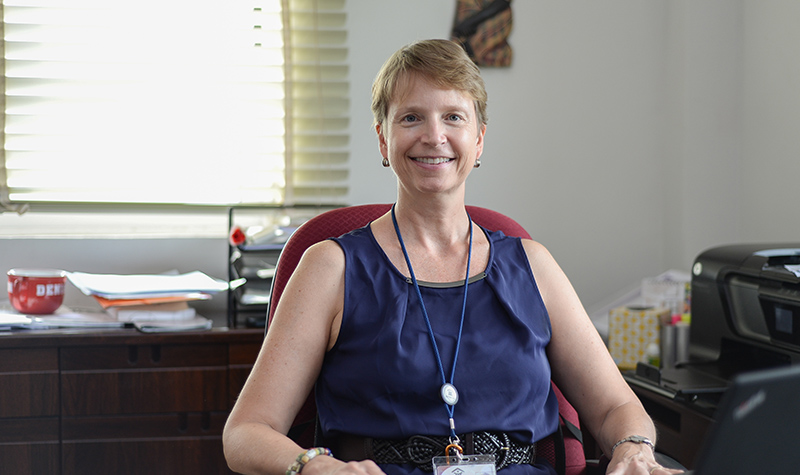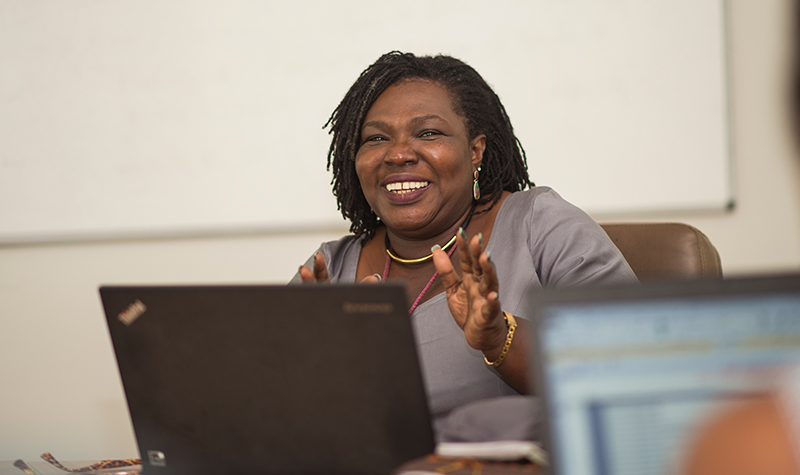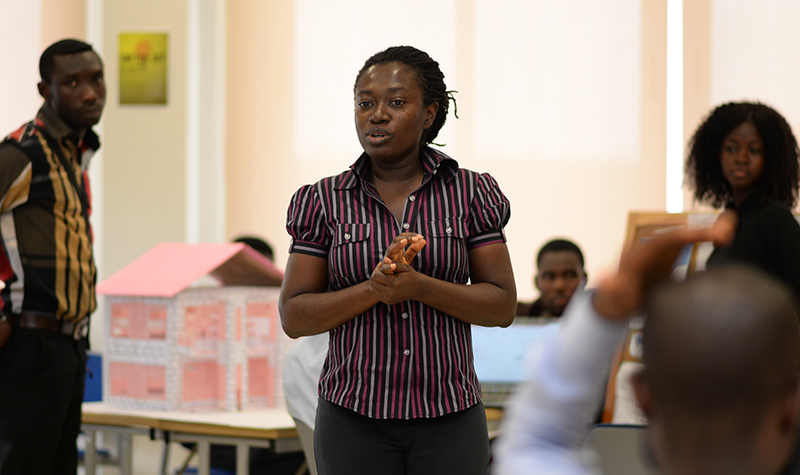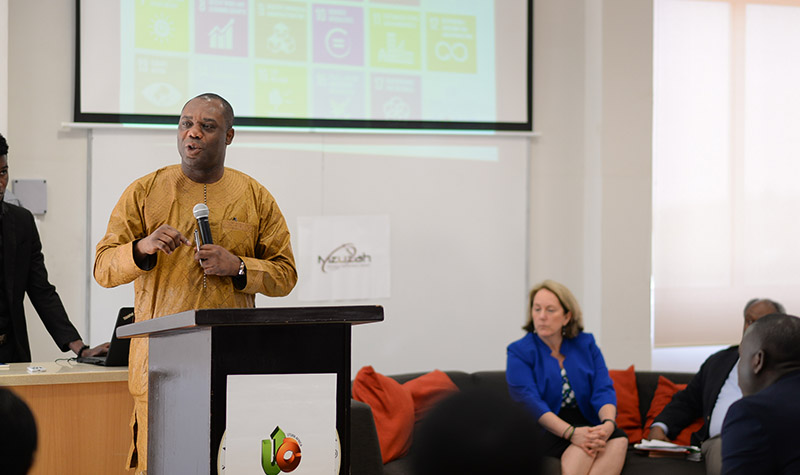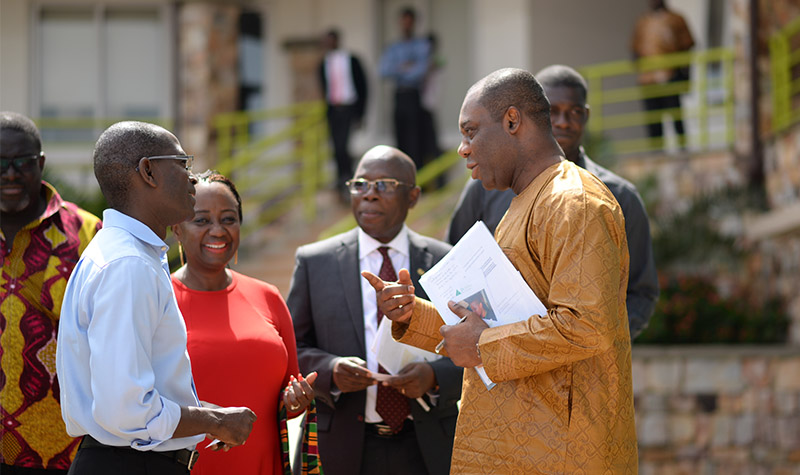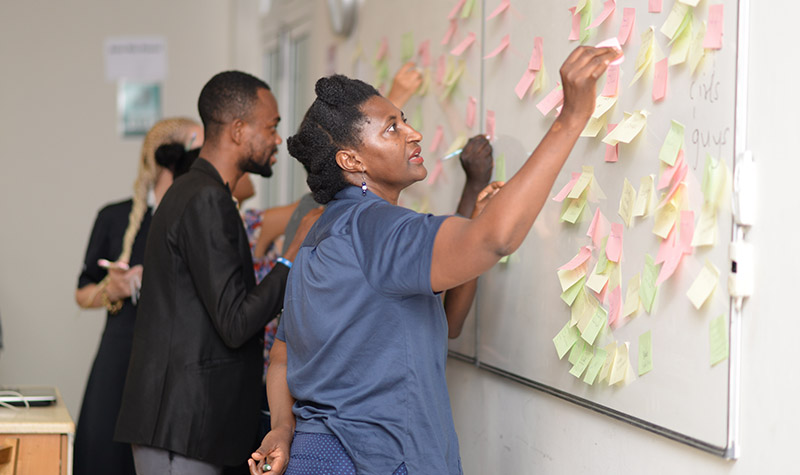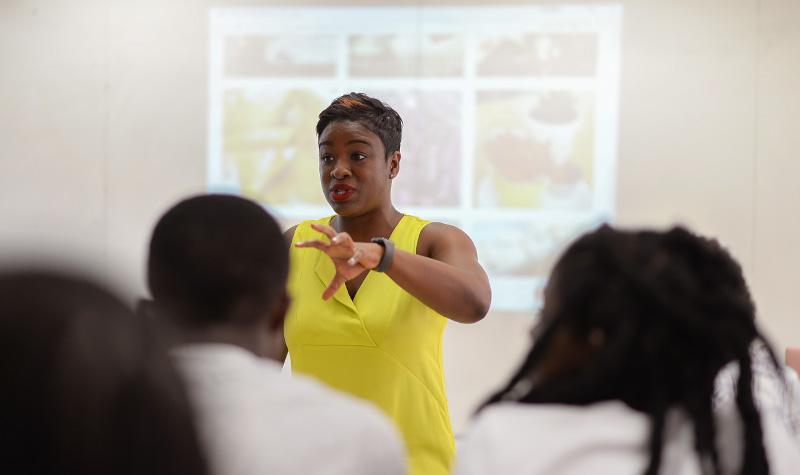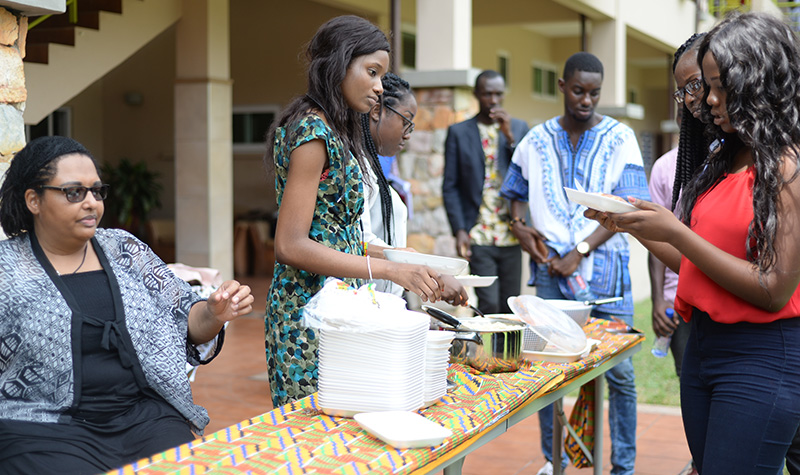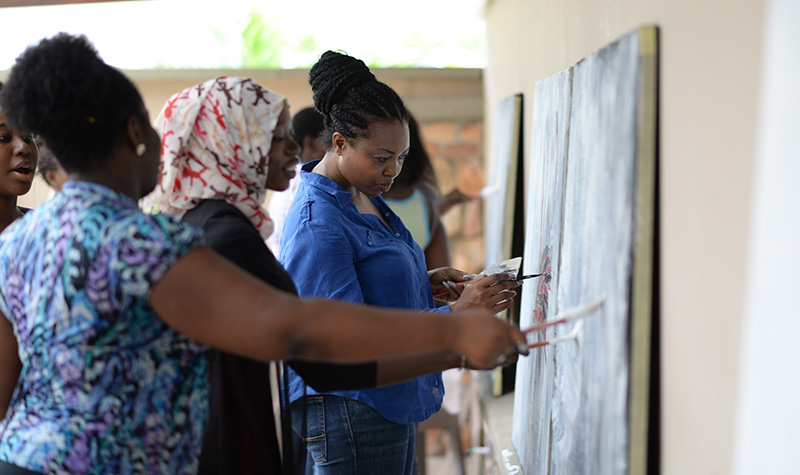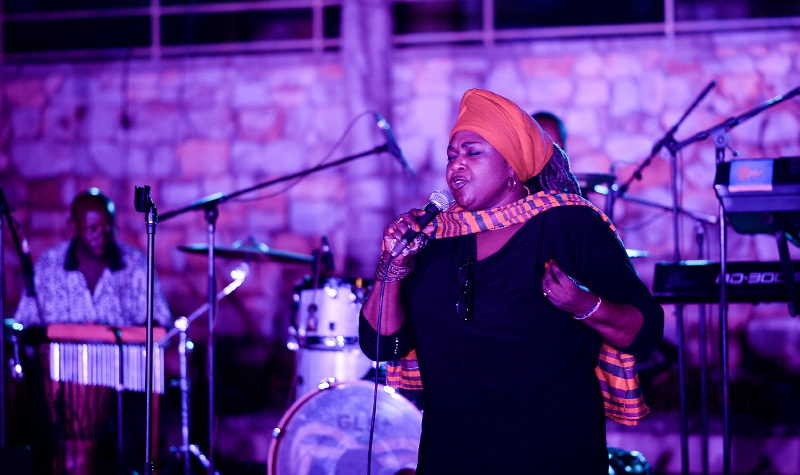Throughout Ashesi's history, women have played important roles in the university’s growth and continuous success. As the world celebrates women for their many achievements on International Women's Day on March 8th, we would like you to meet some of the women within Ashesi’s staff and faculty who continue to serve as inspiration for the rest of the community.
Here, they share lessons they have picked up along their careers, and how they also serve as inspiration to not just other women, but to the community at large.
Dr. Kajsa Hallberg Adu
Lecturer
Over the past five years, Kajsa has been instrumental in teaching students at Ashesi to write and express themselves better, in the Written and Oral Communication and Social Theory classes.
She also co-founded Ghana’s largest network for bloggers and social media enthusiasts, Blogging Ghana, which over the years has been instrumental in political activism through its
Ghana Decides project. In the spring of 2010, she piloted Ashesi’s undergraduate adaption of Mary Gentile’s business ethics curriculum Giving Voice to Values in a group of freshmen. Since then, she has been active in a working group, which has developed and implemented a mandatory program for Ashesi’s students on ethics.
“Our goal should be to make sure that it is as common to have female leaders as it is to have male leaders,” she said. “I believe in widening the space of what is possible and what is allowed. So in my work, I’m try to create the space for others, as a lecturer and role model.”
Rose Dodd
Adjunct Faculty
After graduating from Ashesi with a degree in Business Administration in 2009, Rose worked in several roles in social enterprise, consulting and education.
Currently back at Ashesi, Rose is a member of the Foundations of Design and Entrepreneurship faculty, helping to train Ashesi students in problem solving through Design Thinking, while giving them experience in entrepreneurship.
In 2016, Rose secured funding from the Ford Foundation to provide safe spaces for children of
kayayei (head porters) through
Kayacare, an initiative she founded.
“Growing up, I worked hard and had great mentors,” she explained. “It never occurred to me that I am limited because I am a woman. While at Ashesi, I met people who inspired me by how hard they worked and the successes they achieved, so I felt there was no reason I could not make it. Now I see the need to also be an inspiration to other girls who are coming up. I recognized that it’s up to those of us who have gone ahead to create that environment to empower the rest who are coming.”
This summer, Rose will head the pilot
education collaborative at Ashesi that will bring together a network of institutions and individuals committed to addressing Africa’s biggest challenges through education.
Dr. Getrude Ayorkor Korsah
Head of Department of Computer Science
Currently the Head of the Computer Science Department, Dr. Ayokor Korsah is a leading authority in Robotics and Artificial Intelligence in Ghana. Earlier this year, she was featured by Forbes, as the “woman who brought robotics to Ghana”.
In 2012 she co-founded the
Africa Robotics Network (AFRON), a community aimed at promoting collaboration among institutions and individuals engaged in robotics in Africa. A year after its founding, AFRON was awarded the
Tribeca Disruptive Innovation Award (TDIA) for its work in creating low-cost robotic kits for robotics education.
At Ashesi, Dr. Korsah worked with colleagues to start the
Ashesi Innovation Experience (AIX); an immersive two-week experience for high school students at Ashesi. Through AIX and several education networks that Ayokor has helped to start, she is able pursue her passion for making education accessible.
“It will be sad that someone misses out on something they could have found interesting just because of a stereotype or a feeling that they couldn’t do it,” said Dr. Korsah. “Education helps to build capacity, and it makes things that were not previously possible, possible.”
Besides designing and teaching the Robotics course at Ashesi, Ayorkor teaches the Data Structures and Algorithms and a number of introductory programming classes for Computer Science majors.
Rebecca Awuah
Head of Department of Humanities and Social Sciences
Since joining Ashesi in 2008, Rebecca has been instrumental in providing structure to Ashesi’s mathematics curriculum. Over the years, she has taught Pre-Calculus, Calculus and Statistics to several of Ashesi students and alumni.
“Finding teaching a thing of luck, because I found my passion and strength therein,” she said. “Many students don’t have positive views of mathematic classes and teachers. So by making math relevant, fun and practical, by making people see strategies and by showing them that they can be successful, I feel I’ve been able to turn a lot of students perspectives to more confident and positive views of maths.”
Currently, as Head of the Department of Humanities and Social Sciences, Rebecca is deeply involved in helping enrich the liberal arts experience for Ashesi students.
Rebecca also works with communities beyond Ashesi. In Berekuso, she leads the Bereksuo Math Project, through which Ashesi students provide extra maths lessons for Berekuso students. As a member of the Nana Oteng Korankye Educational Fund board, she is also actively involved in working leaders of Berekuso in beefing up the quality of education in the town.
Dr. Elena Rosca
Senior Lecturer
At Ashesi, Dr. Rosca teaches Discrete Theory and Concepts, Applied Programing for Engineers and Applied Physics. She also leads the Women in Tech group, providing a space where women in science related fields can discuss real problems they face in their fields, and be guided to find work-arounds.
“For some of the girls, it’s not just a big accomplishment to be doing engineering, but it is an achievement to even be in school, so they might need some extra attention,” shared Dr. Rosca. “My goal is to make sure that all the girls who have been accepted in the program should be able to make it through.”
Before joining Ashesi, Elena was a lecturer in Molecular Engineering at the University of Hull, UK. She earned her Bachelors degrees in Mathematics and Microbiology from the Arizona State University, where she later received her PhD, also in Bioengineering. She was also a Postdoctoral Fellow at the Johns Hopkins University and worked as an Associate Researcher at Kings College, London.
Dr. Suzanne Buchele
Provost
After serving as Associate Provost at Ashesi for two years, Dr. Buchele took over the position of Provost following
Dr. Marcia’s Grant’s retirement in 2016. In her position, Suzanne oversees all academic affairs and activities at Ashesi and is also a member of the Executive team – the core of Ashesi’s leadership.
Her relationship with Ashesi, however precedes her Associate Provost days; Suzanne was Ashesi’s first Fulbright Scholar, from 2006-2007. She extended her Fulbright to 2007-2008, when she took on the role of Acting Dean of Academic Affairs at Ashesi. She also served as visiting lecturer at Ashesi during the summers of 2010 and 2012.
For her, teaching presented a chance to turn on a switch in her students. “It was an opportunity to excite people who had no intention of being excited,” she said, about her teaching days. “Not only did I enjoy introducing people to computing, but also I was intentional about seeking the females students who were quiet in class, and making sure that they were included in conversations.”
Suzanne Buchele earned a B.A. Summa Cum Laude in Mathematical Sciences from Connecticut College in 1985. After graduating from Connecticut College, she worked as a Programmer/Research Scientist for Scientific Measurement Systems (a small company that designed and built industrial CAT scanners), after which she went on to do an M.A. in Mathematics, and an M.S. and Ph.D. in Computer Sciences from the University of Texas, Austin.
Araba Botchway
Director of Admissions and Financial Aid
In her position, Araba leads the Admissions team in recruiting the best of students to Ashesi year after year. She is also a member of the Executive team – the core of Ashesi’s leadership.
As part of her work, she helps manage some of Ashesi’s partnerships with some of our biggest scholarship benefactors, including a
25.5 million dollar gift from the MasterCard Foundation to help 200 brilliant but under-resourced students from across Africa to gain access to a premium education.
As part of Ashesi’s mission to achieve gender parity in enrolment, Araba is leading the charge to attract women to Ashesi’s Engineering program.
“I’ve seen so many cases where the girls didn’t think they were good enough, without realizing some of the setbacks and hurdles they have had to deal with, so I find the need to encourage girls and to let them know that it’s possible when you put in the effort,” she explained. “We have to get to a point where women-in-engineering becomes common place, and also support the few who are bold to take the step, and keep encouraging them to stay in there. They will become role models for others. And soon, it won’t be a novelty.”
Ruth Kwakwa
Dean of Students and Community Affairs
As Dean of Student and Community Affairs, Ruth oversees all student-centred and community related activities at Ashesi. Since joining Ashesi in 2012, her office has expanded to further cater to students’ diverse needs, adding an Office for Community Engagement, and an office for an in-house wellness counselor. She is also a member of the Executive team – the core of Ashesi’s leadership.
“Many of us who rally behind students at Ashesi personally benefited from wonderful university experiences, and our greatest desire is to give them even more than we had,” she shared. “We hope that [our students] will come to appreciate the ‘Ashesi Way’, fueled by curiosity and resources, and which is upheld by our three guiding pillars: scholarship, leadership and citizenship.”
A graduate of the Massachusetts Institute of Technology (MIT) and Swarthmore College, Ruth joined Ashesi with several years of diverse experiences in different sectors. She worked with the World Bank and the Swedish Development Agency as a Consultant, Lintas Ghana Limited as Director of Media Strategy and Redhill School, South Africa as the Manager for Marketing, Brand Management and Alumni Relations. Ruth has a passion for working with young adults through mentoring, intercultural exchanges and leadership programs.
Dr. Sena Agyepong
Lecturer
At Ashesi, Dr. Agyepong teaches Entrepreneurship and Real Estate. In helping to drive Ashesi’s mission towards training ethical entrepreneurial leaders, Dr. Agyepong helped design the curriculum for Foundations of Design and Entrepreneurship (FDE). And now at Ashesi, all freshmen take FDE, and are exposed to the rigors of structuring startups and managing new businesses.
Sena also works with the Next Generation Cocoa Youth Program (MASO), a MasterCard Foundation funded program led by
Solidaridad, to bring Ashesi’s entrepreneurship training to underdeveloped communities across Ghana. Through this project she directly impacts the lives of young farmers in Ghana's cocoa industry.
“I believe entrepreneurial education will help move Ghana, and Africa, to developed status,” she says. “As an imperative, it should be something that everyone has access to.”
Sena earned her Ph.D in Building Technology from the Kwame Nkrumah University of Science and Technology, Kumasi, Ghana and an Executive Diploma in Arbitration and Mediation, Gamey and Gamey Academy of Mediation, Tema, Ghana. She also received her Bachelor of Science Building Technology, Kwame Nkrumah University of Science and Technology, Kumasi, Ghana
Aba Kaadze Enyimayew
Associate Director of Human Resources.
With over 10 years of experience in the Human Resources and Organizational Psychology, Aba joined Ashesi in 2015 to help identify and recruit top talent to the institution. Before Ashesi, she worked with leading firms in Ghana including Anglo Ashanti Gold Fields and L’aine Services in human resources and communication roles.
“A lot of women guilt-trip themselves about not being able to do something - I’ve learnt not to make excuses for my inability to do things because I wasn’t strong or big enough,” she said. “Instead, I’ve learned to ask for help when I need help, to put structures in place and not have to defend who I am as a woman. This has garnered me respect among colleagues and peers.”
Aba is also a member of
Ahaspora, a network of young Ghanaian returnee-professionals seeking to create impact within their local communities in Ghana. There she leads the network’s career development programs and is actively involved in its mentorship program for senior high school students.
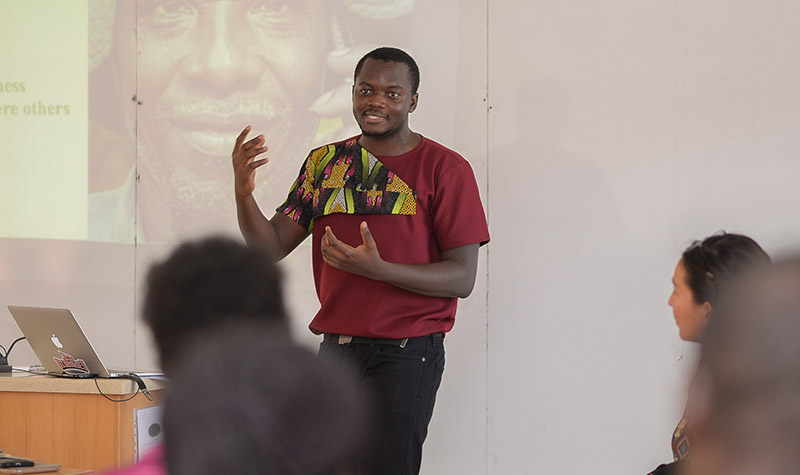
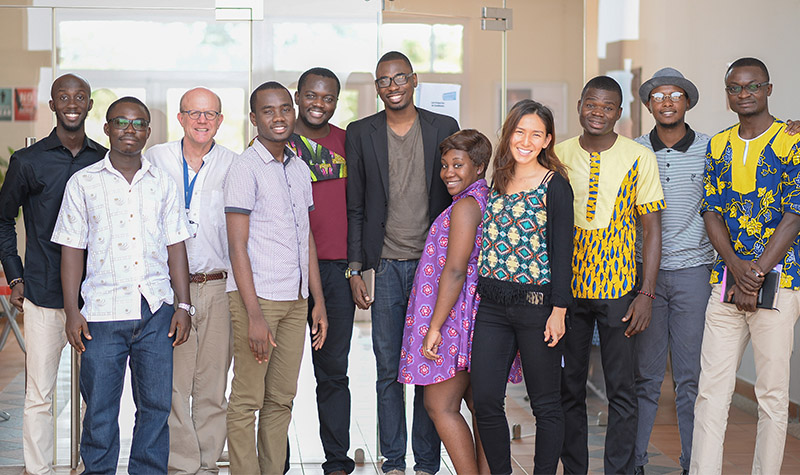 [A cross-section of the Farmerline team and some members of the Social Enterprise course]
[A cross-section of the Farmerline team and some members of the Social Enterprise course]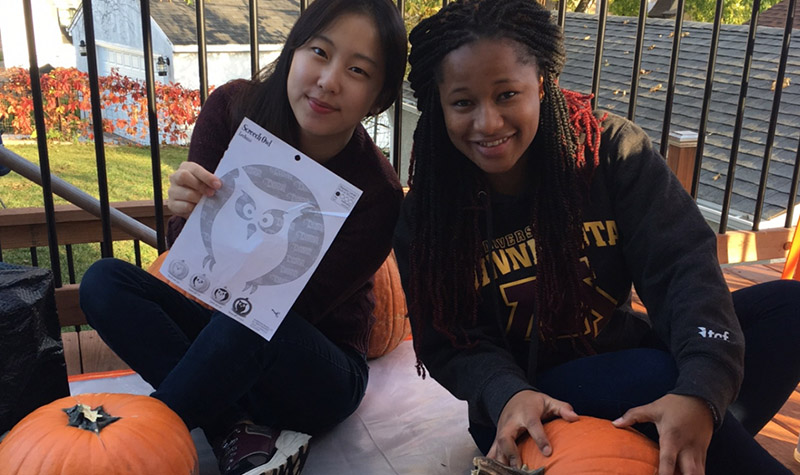
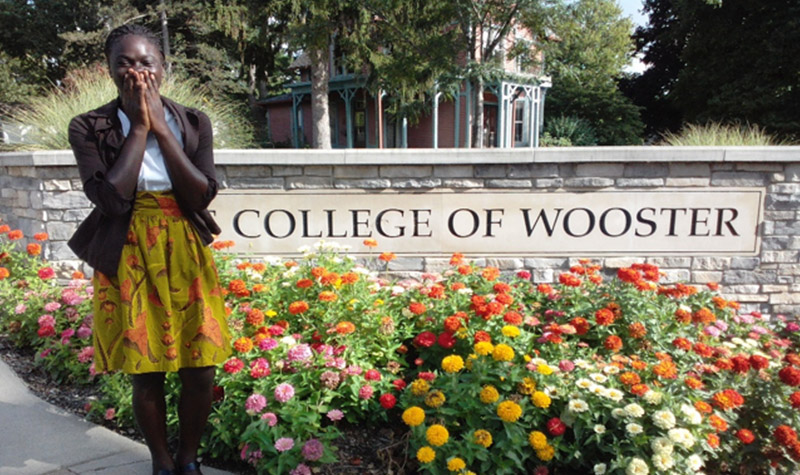


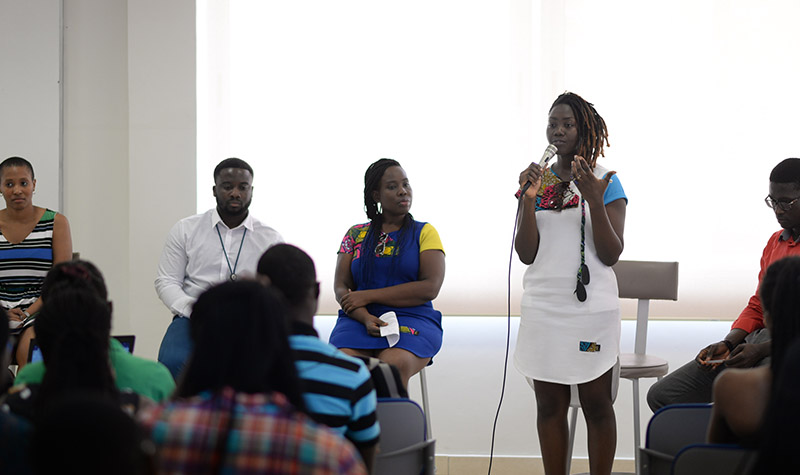
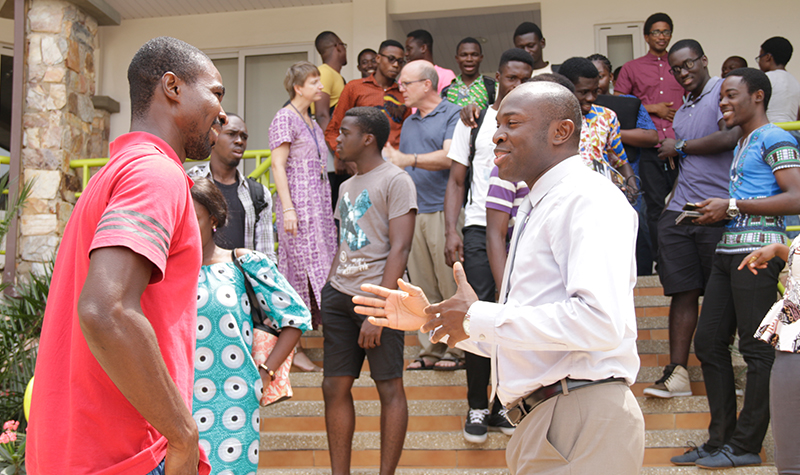 Speaking to a mix of faculty and students, on a recent visit to Ashesi’s campus, Francis shared his journey, from Ashesi to Amazon. Following graduation, he turned down lucrative offers from several financial institutions seeking his skillset in their tech departments. Instead, he sought out opportunities where he would be at the forefront of programming. After his national service at
Speaking to a mix of faculty and students, on a recent visit to Ashesi’s campus, Francis shared his journey, from Ashesi to Amazon. Following graduation, he turned down lucrative offers from several financial institutions seeking his skillset in their tech departments. Instead, he sought out opportunities where he would be at the forefront of programming. After his national service at 